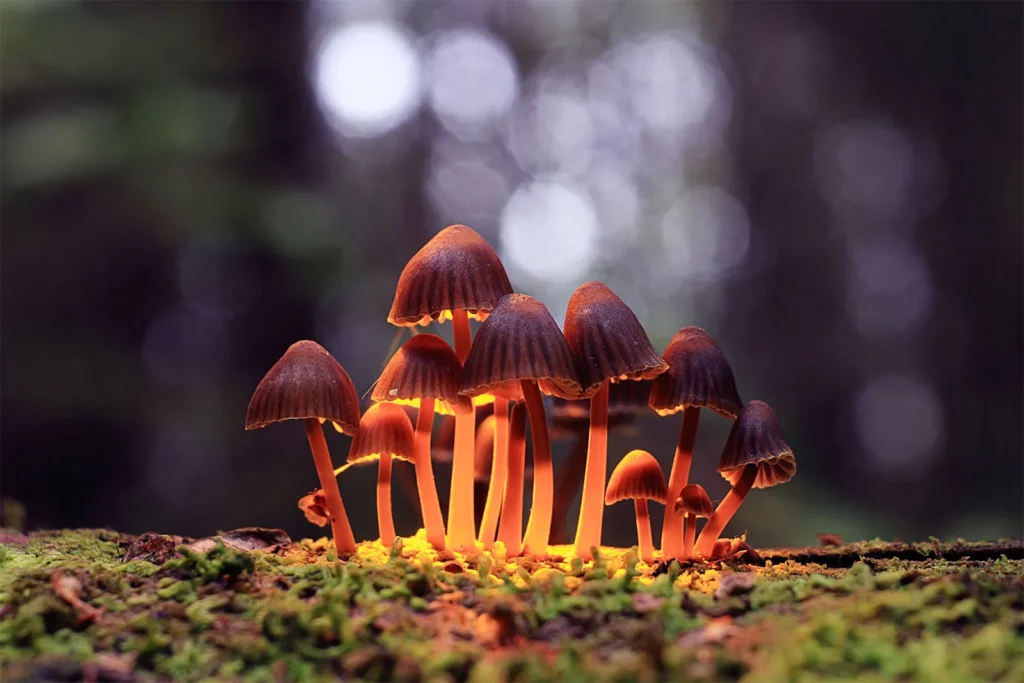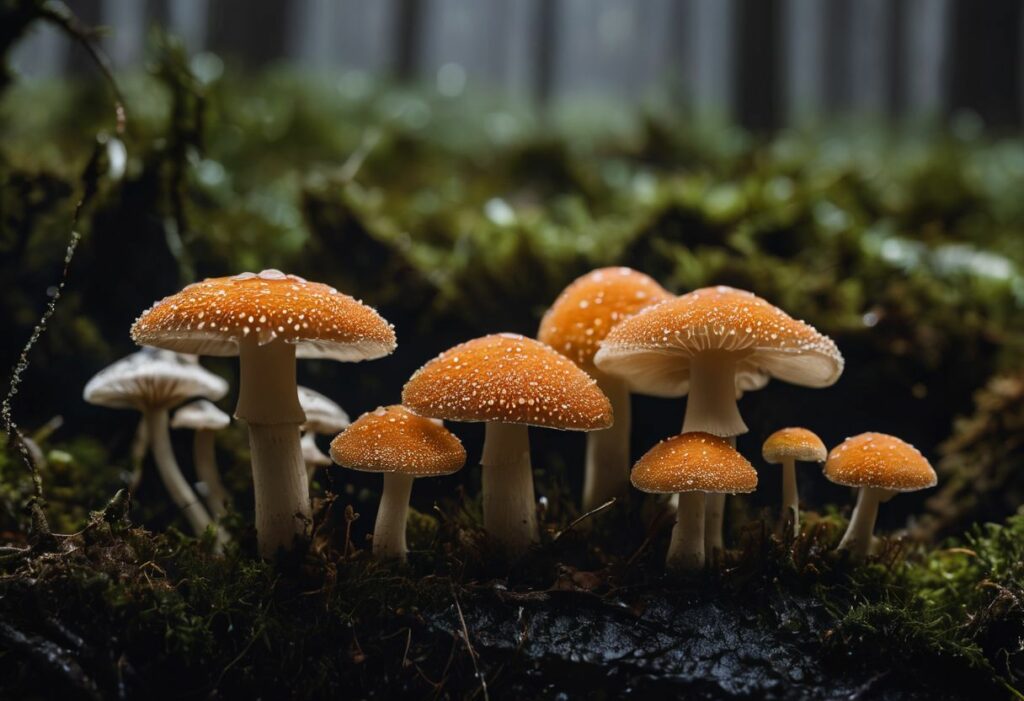Introduction
The spiritual significance of magic mushrooms is deeply intertwined with indigenous cosmologies, where the natural world is revered as sacred and imbued with profound spiritual meaning. In these cultures, plants are viewed not merely as resources to be exploited but as sentient beings with whom humans share a reciprocal relationship.
Magic mushrooms, with their ability to induce altered states of consciousness, are seen as mediators between the human and spirit realms, facilitating communication with ancestors, deities, and the forces of nature. Through rituals and ceremonies guided by skilled shamans or spiritual leaders, individuals seek guidance, healing, and transformation, guided by the wisdom of the plants and the collective knowledge of their ancestors.
As we delve deeper into the mysteries of ethnobotanical traditions, we are invited to reexamine our own relationship with nature and cultivate a deeper sense of reverence and respect for the interconnected web of life that sustains us all.
Understanding Ethnobotanical Traditions

Ethnobotany, as a discipline, serves as a bridge between cultural knowledge and scientific inquiry, offering a holistic understanding of the intricate relationships between humans and plants. Indigenous communities, with their deep-rooted connections to the land, have developed intricate systems of plant knowledge that encompass not only the practical uses of plants for food, medicine, and shelter but also their spiritual and symbolic significance.
Magic mushrooms, or psilocybin mushrooms, exemplify the profound spiritual and cultural significance that certain plants hold within indigenous traditions. Among the Mazatec people of Mexico, magic mushrooms are revered as a sacrament, believed to facilitate communion with the divine and unlock hidden realms of consciousness. Similarly, in the Amazon rainforest, indigenous tribes view magic mushrooms as potent allies in their shamanic practices, guiding them through realms of spiritual exploration and healing.
The ethnobotanical study of magic mushrooms not only sheds light on their pharmacological properties and therapeutic potential but also underscores the importance of cultural context in understanding their significance. By recognizing and honoring the traditional knowledge systems of indigenous peoples, we gain a deeper appreciation for the profound wisdom encoded within the natural world and the diverse ways in which humans have navigated their relationship with it throughout history.
Cultural Significance of Magic Mushrooms
Within indigenous communities, magic mushrooms are often revered as sacred allies, facilitating profound experiences of connection with the natural world and the divine. The rituals surrounding their use are deeply embedded in cultural mythology and belief systems, with shamans and spiritual leaders serving as guides in the exploration of altered states of consciousness.
For example, among the Mazatec people, magic mushrooms are known as “holy children” or “little saints” and are traditionally consumed during healing ceremonies led by a curandero, or traditional healer. These ceremonies are believed to facilitate spiritual growth, emotional healing, and a deeper understanding of the self and the universe.
Similarly, in the Amazon rainforest, indigenous tribes such as the Shipibo-Conibo and the Yawanawá have long incorporated magic mushrooms into their shamanic practices. For these communities, the mushrooms serve as a gateway to the spirit world, enabling communication with ancestral spirits, nature deities, and the cosmic consciousness.
Also Read: Unlocking the Mysteries of Magic Mushrooms
Healing and Therapeutic Potential
Beyond their spiritual and ceremonial use, magic mushrooms also hold significant therapeutic potential. Research conducted in recent years has highlighted the efficacy of psilocybin, the psychoactive compound found in these fungi, in treating various mental health conditions, including depression, anxiety, and PTSD.
Indigenous wisdom regarding the healing properties of magic mushrooms is now being rediscovered and integrated into modern therapeutic practices. Initiatives such as the resurgence of psychedelic-assisted therapy and the decriminalization of psilocybin in some regions are reflective of a growing recognition of the profound benefits that these substances can offer when used responsibly and with respect for their cultural origins.
Preserving Indigenous Knowledge and Biodiversity
Indigenous cultures have long served as stewards of the land, nurturing a profound understanding of ecological balance and the interconnectedness of all living beings. Their traditional knowledge systems offer invaluable wisdom for navigating the complexities of our modern environmental challenges, from climate change to habitat destruction.
Furthermore, the preservation of indigenous cultures is not merely a matter of cultural heritage but a matter of global significance. Indigenous peoples are often the guardians of biodiverse regions, safeguarding vital ecosystems that harbor rich biodiversity and provide essential ecological services. As we lose indigenous languages, customs, and traditional practices at an alarming rate, we also risk losing critical knowledge about medicinal plants, sustainable agricultural practices, and ecosystem management strategies honed over millennia.
Incorporating indigenous perspectives into conservation efforts and land management practices is crucial for promoting ecological resilience and fostering sustainable development. By partnering with indigenous communities and respecting their rights to self-determination and land sovereignty, we can work towards a more equitable and environmentally just future for all.
In conclusion, the preservation of indigenous cultures and their intimate relationship with the natural world is paramount for safeguarding the health of our planet and ensuring the well-being of future generations. By embracing the wisdom of ethnobotanical traditions and honoring indigenous ways of knowing, we can forge a path towards greater harmony, both within ourselves and with the Earth.
Conclusion
The indigenous use of magic mushrooms offers a profound window into the intricate web of relationships that exist between humans, plants, and the cosmos. As we navigate the complexities of the modern world, there is much to be learned from the wisdom of indigenous cultures and their deep-rooted connection to the natural world.
By embracing ethnobotanical traditions with humility, reverence, and a commitment to sustainability, we can not only harness the therapeutic potential of magic mushrooms for individual and collective healing but also work towards a more harmonious coexistence with the planet we call home.

